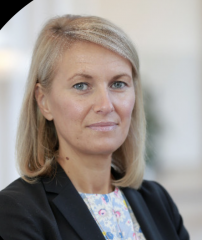

Ericsson and OPPO have signed a multi-year global patent cross-license agreement covering patents including 5G.
In addition to a cross-license, OPPO and Ericsson will cooperate on 5G projects, including device testing, customer engagements, and marketing activities.
OPPO and Nokia in January settled months of legal disputes over 5G patents that ended up in several court cases

Christina Petersson, Chief Intellectual Property Officer at Ericsson, said: “This important royalty-bearing license agreement with OPPO allows Ericsson to further invest in fundamental communications technologies. The license confirms that the patent licensing industry works and is proof that a vast majority of license agreements are based on business negotiations.
“It also reflects the mutual respect for each other’s patent portfolio. We now look forward to growing Ericsson’s IPR revenues with additional 5G agreements and expansion into additional licensing areas, such as IoT and consumer electronics.
“This agreement is in line with global practice where companies that provide products using cellular 3GPP standards, such as 5G, need a license agreement with patent holders in order not to infringe these patents and also for patent holders to be compensated for their R&D investment.”
Feng Ying, Chief Intellectual Property Officer of OPPO, said, “We are pleased to announce that we have reached a global cooperation agreement with Ericsson. The global patent cross-license between the two companies covers cellular standard-essential patents, including 5G.
“This agreement reflects the mutual recognition and respect for each other’s intellectual property and lays a solid foundation for our collaboration. OPPO has always respected intellectual property, advocated for reasonable fees, and supported the establishment of a long-term healthy IP ecosystem. We aim to resolve IP disputes between licensors and licensees through friendly negotiation, with mutual respect for the value of patents.”
OPPO has filed over 6,200 families of global patent applications for 5G communication standards across more than 40 countries and regions.







